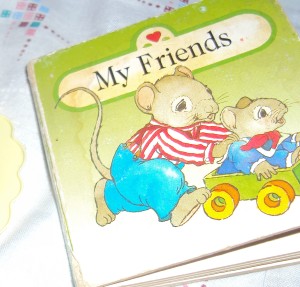 I have a friend who diagnosed her son of having social anxiety disorder. His son is already 4 years old, she told me that his son has severe tantrums in public place such as in school. Also, her son is very shy in school and unable to communicate with his teacher and classmates. So, my friend decided to seek advice from development pediatrician regarding the current situation of his son and finally his son was identified as having social anxiety disorder. His son was advised to have therapy to overcome his behavior towards other people.
I have a friend who diagnosed her son of having social anxiety disorder. His son is already 4 years old, she told me that his son has severe tantrums in public place such as in school. Also, her son is very shy in school and unable to communicate with his teacher and classmates. So, my friend decided to seek advice from development pediatrician regarding the current situation of his son and finally his son was identified as having social anxiety disorder. His son was advised to have therapy to overcome his behavior towards other people.
Social anxiety disorder is also called social phobia. It is anxiety disorder that a person who suffering this has unreasonable and excessive fear of social situation. Also, it is an intense self-consciousness and fear of embarrassment which make individual to be shy and avoiding social interactions.
Social Anxiety Signs and Symptoms
According to Mayo clinic, symptoms of social anxiety disorder are the following:
- Fear of situations in which you may be judged
- Worrying about embarrassing or humiliating yourself
- Concern that you’ll offend someone
- Intense fear of interacting or talking with strangers
- Fear that others will notice that you look anxious
- Fear of physical symptoms that may cause you embarrassment, such as blushing, sweating, trembling or having a shaky voice
- Avoiding doing things or speaking to people out of fear of embarrassment
- Avoiding situations where you might be the center of attention
- Having anxiety in anticipation of a feared activity or event
- Spending time after a social situation analyzing your performance and identifying flaws in your interactions
- Expecting the worst possible consequences from a negative experience during a social situation
Physical Symptoms of Social Anxiety Disorder
- Fast heartbeat
- Upset stomach or nausea
- Trouble catching your breath
- Dizziness or lightheadedness
- Confusion or feeling “out of body”
- Diarrhea
- Muscle tension
Social Anxiety Treatment
- Cognitive-behavioral therapy
The goal of therapy is a behavior modification. It helps to improve child’s social and coping during anxiety provoking situation as well it helps to overcome child’s fear. Cognitive behavioral therapy has been successful in treating social anxiety behavior. It is successful in changing people’s thoughts, beliefs, feelings and behavior that make them to overcome their anxiety.
- Medication
Some people may respond to medication but not to all people. Some medication can lessen of anxiety which make behavioral therapy is more effective. Using drugs is only effective for the short period of time unlike therapy which can be beneficial in the long term. Beta blockers drugs are prescribed to curb the fear response and decrease physical symptoms of anxiety such as sweating and palpitations. Drugs that are proven effective in managing symptoms of social anxiety disorder are SSRIs or selective serotonin reuptake inhibitors.
